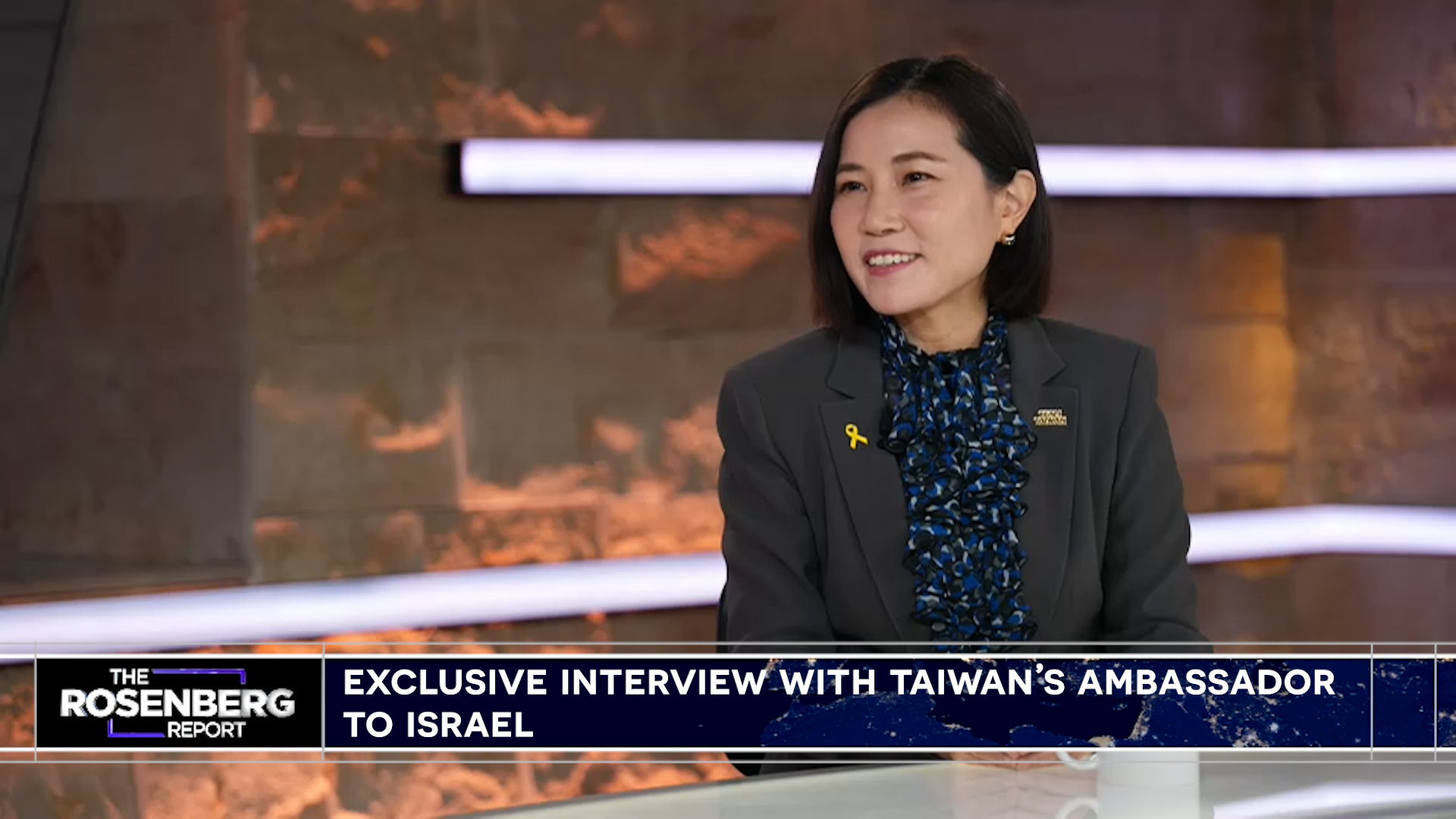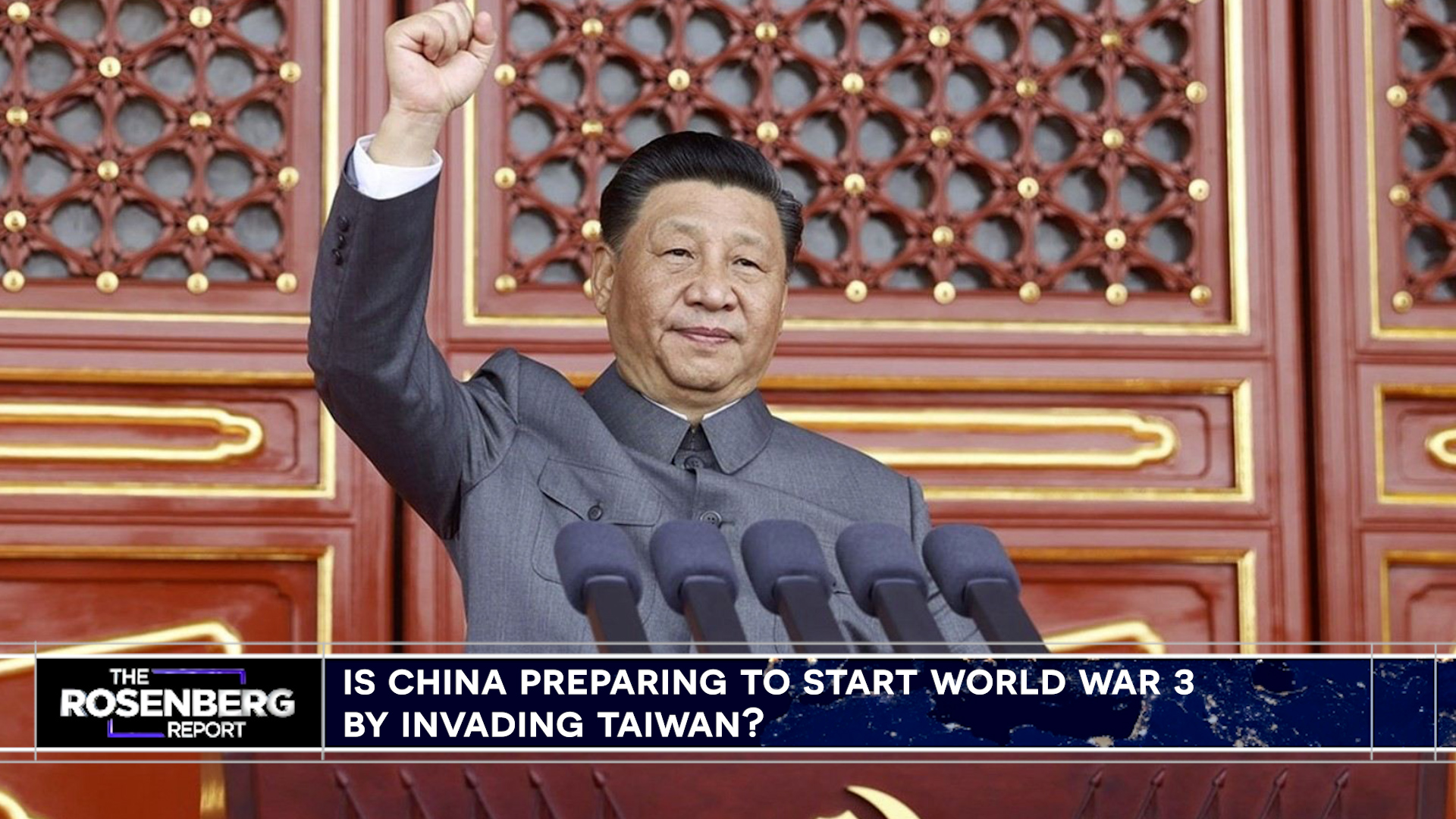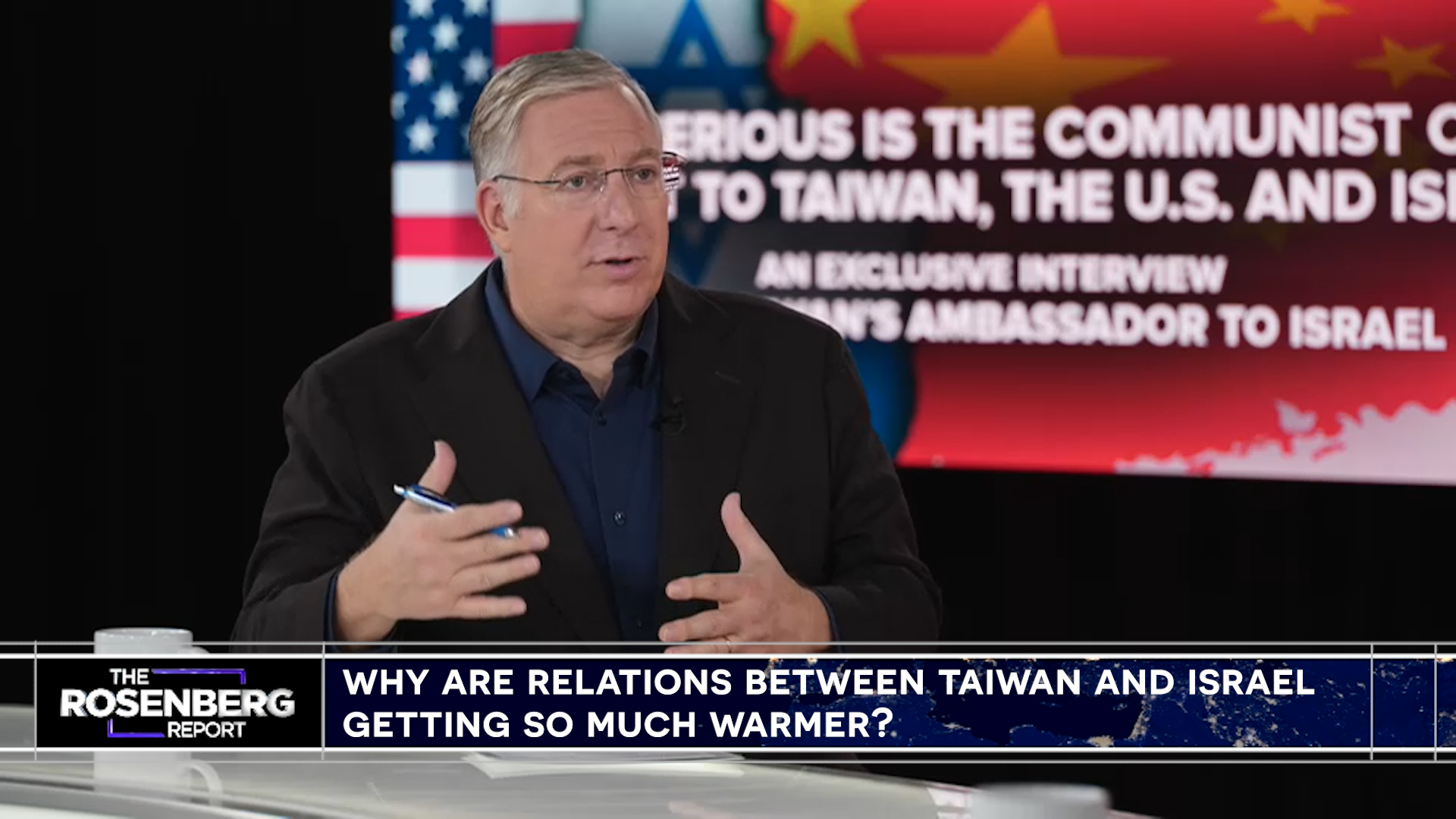Taiwan’s ambassador to Israel says China’s leader Xi Jinping knows he can’t conquer Taiwan at ‘low cost’
On THE ROSENBERG REPORT, Ambassador Ya-ping Lee discusses why peace cannot be taken for granted, outlines Taiwan’s strategy against Chinese threat and explains how US-Israel cooperation with Taiwan can bring mutual benefits

“Is Communist China the most dangerous nation on the planet?” TBN host and ALL ISRAEL NEWS Editor-in-Chief Joel Rosenberg asked as he opened the latest episode of THE ROSENBERG REPORT.
Rosenberg warned that Chinese leader Xi Jinping does not only want to marginalize the United States, but also wishes to dominate the Pacific.
“He wants the Democratic Island of Taiwan for himself,” he said.
To dig deeper into the issue, Rosenberg invited Taiwanese Ambassador to Israel Abby Ya-ping Lee to discuss the stakes of China’s expanding geo-strategic ambitions.
Taiwan’s ambassador to Israel: "We really take our national defense seriously"
During the interview, Rosenberg acknowledged that many Christians tend to focus on the threats of Iran or the war in Ukraine, while paying far less attention to China.
“Taiwan has been living under the Chinese threat for decades. It is not news for us,” Ambassador Ya-ping Lee responded. “We are a young democracy. After living under 37 years of martial law, we finally held our first presidential election in 1996 – and China responded by firing missiles.”

She explained that Beijing has escalated its tactics since then: “China has been intensifying its military pressure on Taiwan, also through hybrid tools of military means, diplomatic isolation, economic coercion, disinformation campaigns, and cyber-attacks. We don't take peace for granted. We really take our national defense seriously.”
To that end, Taiwan has pledged to dramatically increase defense spending. “Our president just announced that we are going to increase our national defense budget to 3.3% of our GDP. We're going to reach 5% by 2030, to localize and develop our indigenous national defense,” she said.
Rosenberg noted the significance of this step: “That’s a big deal.”
Ya-ping Lee stressed that deterrence is the key: “Overall, what we are doing is to increase our deterrence to stop military action or conflict from happening in this part of the world… Our strategy is to make Xi Jinping believe, ‘Not today.’ Whether it's 2027, earlier, or even beyond – we have to complicate his calculation and make him not believe that he can conquer Taiwan at a very low cost.”
To send Beijing a clear message, Taiwan is also investing in alliances with “like-minded countries,” she noted, highlighting the strategic partnership with the United States.
“Why didn’t Xi Jinping seize the moment in 2021, after President Biden’s withdrawal from Afghanistan, when American weakness seemed obvious to the world?” asked Rosenberg.
Ambassador Ya-ping Lee pointed to the resilience of the Taiwanese people and the economic consequences of war.“
Xi Jinping realized that Taiwanese people have a resolve to defend our country. And he also knows that, if any war triggers between Taiwan and China, there will be serious repercussions on China's economy. According to estimates, such a conflict could trigger a loss of about 10% of global GDP – twice the size of the downturn during COVID. So, China would also fall victim to such a contingency,” she said.

Taiwan’s ambassador to Israel: "We are very pleased to see the rock-solid support" from Trump administration
Turning to Washington’s role, Rosenberg asked Ya-ping Lee, “What do you need from the United States to make sure that a war with China never happens?”
She emphasized the importance of bipartisan support: “The relationship is guided by the Taiwan Relations Act, which has withstood numerous administrations, and has bipartisan support in Congress. Supporting Taiwan and strengthening the relationship with Taiwan is a bipartisan consensus in the United States. We are very grateful for that.”
The ambassador noted that Taiwan has “good friends” in the Trump administration, adding, “We are very pleased to see the rock-solid support.”
To underscore the benefits of this strong relationship for both sides, Ya-ping Lee highlighted Taiwan’s critical role in the global economy: “Taiwan manufactures about 60% of semiconductor chips, 95% of high-end chips and almost 100% of AI chips. These chips are empowering the next generation of AI development. So, we are playing a very key role in the next modern technology.”
“TSMC (Taiwan Semiconductor Manufacturing Company) just made a 165 billion USD investment commitment in Arizona state. This is the largest foreign investment in the green field in the United States’ history,” she added.
“Taiwan is a relatively small country that invests so much more money in the United States. This doesn’t only showcase and demonstrate how important our partnership, and the relationship is, but also how close our ecosystem is integrated.”
Taiwan’s ambassador to Israel: Taiwan and Israel are complementary to each other
Rosenberg then shifted the conversation to Israel. He explained that historically, Israel has leaned toward economic ties with Beijing and was always “cautious not to be too pro-Taiwan.” But that changed dramatically after Hamas’ Oct. 7, 2023, massacre and the subsequent Iranian attacks. Communist China, he noted, came out strongly against Israel and in favor of Hamas and Iran.
By contrast, the ambassador said that Taiwan was among the first countries to express its solidarity with the State of Israel.
“The people of Israel know that Taiwan and Israel are standing on the front line to defend the expansion of authoritarian regimes, of totalitarianism and terrorism. When those axes of evil – Russia, Iran, China, North Korea are increasing their alignment. We see China imports [sells] a lot of components, weapons to rivals in the Middle East, to Iran. And they purchase almost all the black-market oil from Iran.”
She continued, “It is really worrisome to see that the CCP, the communist China government, are testing their weaponry in the European theater [and] in the Middle East theater. This once again reflects our statement that China's strategic ambition is not just Taiwan. Its ambition is beyond Taiwan. The ultimate goal for communist China is to disrupt the current rules based on international order, which serves all humanity.”

Ambassador Ya-ping Lee hinted that China’s stance post-Oct. 7 has opened the eyes of Israelis: “We are very grateful to see that more and more Israeli friends showed strong interest to pursue a closer and warmer relationship with Taiwan. They see Taiwan on its own merits. We want to have a constructive relationship that is beneficial to both countries and people based on mutual respect.”
“Historically, Taiwan and Israel enjoy very positive, friendly, cooperative relations,” she said. “We signed 34 government-to-government agreements in areas of education, public health, science, and investment. A lot of people in Taiwan feel there are many similarities shared by the two countries, both thriving under threat. Taiwan plays a leadership role in manufacturing hardware, and Israel is very strong in R&D software. We are complementary to each other.”
She concluded with optimism: “In the future AI era, we need partners that are trustworthy and reliable. Both Taiwan and Israel have indispensable roles. I have a very positive view that our future relations will find a way to navigate the complicated geopolitical environment, and also to prosper together.”
Watch Joel Rosenberg’s full conversation with Taiwanese Ambassador to Israel Abby Ya-ping Lee on the TBN website.
THE ROSENBERG REPORT airs Thursday nights at 9 p.m. EDT and Saturday nights at 10 p.m. EDT on Trinity Broadcasting Network (TBN), the most-watched Christian television network in the United States.

The All Israel News Staff is a team of journalists in Israel.
You might also like to read this:

















